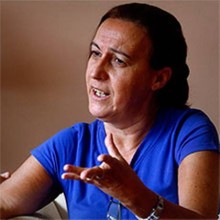Acts and facts
Notícia publicada em:
- 6 de Janeiro de 2015
Shallow explanations for corruption are tempting, but have limited period of validity
One has to admit that the spirit for New Year’s Eve Parties is not of euphoria. On the exhibition from the depths of large business “models” leaked by corruption, an immense perplexity. If there is no shortage, nor to the Government or to private companies, of governance, seal of quality, transparency and monitoring of internal organs and external audits, how to avoid that the appetites of unresolved political and business classes have as an estuary the mismanagement of public resources ? In the last decades, Brazil has replaced considerable portion of the State bureaucratic frameworks and joined with enthusiasm the precepts of Managerialism. It kept, but despite some advances, massive social inequality, among which, the risk exposure and access to and use of health services. Shallow explanations for corruption are tempting, but have limited period of validity. The always repeated “it was always like that” or “this is something from this Government” or even the words of the prophets that will never be surprised are not enough. The modernisation of Government methods and relegation to the electoral calculation policy and the small interests produce contradictory effects. Recently, leaders of the State Secretariat of Health of Tocantins, which received an award for innovation, were accused and arrested for misuse of resources. It may seem strange, but it is likely that both processes, improving the ways to manage certain features and corruption, have occurred simultaneously. Actions listed are not necessarily consistent with the facts provided.
The story of health is full of gestures and initiatives without any reward purposes that changed the direction of the health-disease process and therapeutic innovations. Some of them are well known and led to biographies, scientific studies and movies. In the mid-twentieth century, Vivien Theodore Thomas, a black lab technician, skilled inventor, unable to attend medical school, was admitted as an assistant to surgeon Alfred Blalock and became a pioneer in the treatment of congenital heart defects. Johns Hopkins University awarded him an honorary PhD in 1976. He was one of the first doctors to perform open-heart surgery in the United States. Eunice Rivers, nurse at the Tuskegee project, initiated in the years 1930, in Alabama, based on denial of treatment to black men with syphilis, even from 1945, with the spread of penicillin, comforted the “guinea pigs” and contributed to make public the objectives of the study. However, the experience was only completed with the publication of reports of the historian James Jones, author of the book “Bad blood”, considered a milestone of bioethics, and report by Jean Heller published in 1972 in the “New York Times”. The U.S. Government paid reparations to more than 6,000 people. In 1997, Bill Clinton made a formal apology to the five survivors of the experiment.
HeLa cells, initials of Henrietta Lacks, donated by a woman with cancer who died with 31 years in 1951, allowed further inquiries of the microbiology of the human body. Henrietta’s cells, which remain alive, were used for the production of the vaccine against polio and initially distributed freely to various laboratories and grown for studies on neoplasms and protein synthesis. Subsequently, the cells began to be marketed. The contrast between the scientific feat and the lack of information for the family Lacks and the gigantic corporations profits of medicines and genetic research has stimulated the adoption of standards on donation of biological material.
The work of the photographer Luiz Alfredo Ferreira, in 1961, for the magazine “O Cruzeiro” and Helvécio Ratton’s film “In the name of reason”, released in 1979, about the Hospice in Barbacena, were essential for unveiling the so-called Brazilian Holocaust. Since then, psychiatrists, Brazilian psychologists and international researchers followed revealing the subhuman conditions of psychiatric hospitalizations, the macabre trade in corpses among the hospices for the Anatomy lessons of medical schools and the use of the asylums to lock political prisoners. The legislation on the psychiatric reform enacted in 2001 not ended the controversy about mental health, but certainly represented recognition of the inhumanity of the institutionalized deposits of people. Thomas Maack, physician and physiologist formed by the USP, one of the researchers trapped in the years 1960, developed a brilliant career and currently is dedicated to medical education. He led the reform of the medical curriculum at Cornell, one of the top universities in the US, and has clear positions on the problems of Brazilian medical schools. He stated, in 2014, that many of our medical faculties, outside the known exceptions, would not be recognized in developed countries and that the teaching of quality Medicine does not profit.
Common interest-driven acts trigger solidarity values and facts. It is incorrect to pair actions in the society and the deliberations of Governments. However the “decision-making powers” and the beliefs of that proposed models automatically become reality reduce the central role of the public sphere to define relevant themes and allow the encounter of contrasting wills. By the way: the federal Government will be against, in favour, or on the contrary, of the increase of foreign investment in medical institutions? Will it adopt some guidance before the evident financial failures and assistance from health insurance companies? All this is happening now, with the naked eye. More health and high rates of return for investors are political antagonisms and not personnal or accounting matters. There is no magic potion to cure who is sad or enraptured by certainty, what lies ahead is a new year, in which the adjectives and the illusion of taking administrative procedures by hard facts can be displaced in favour of a debate and participation.
Ligia Bahia is professor at UFRJ
ligiabahia55@gmail.com
Source: O Globo.





